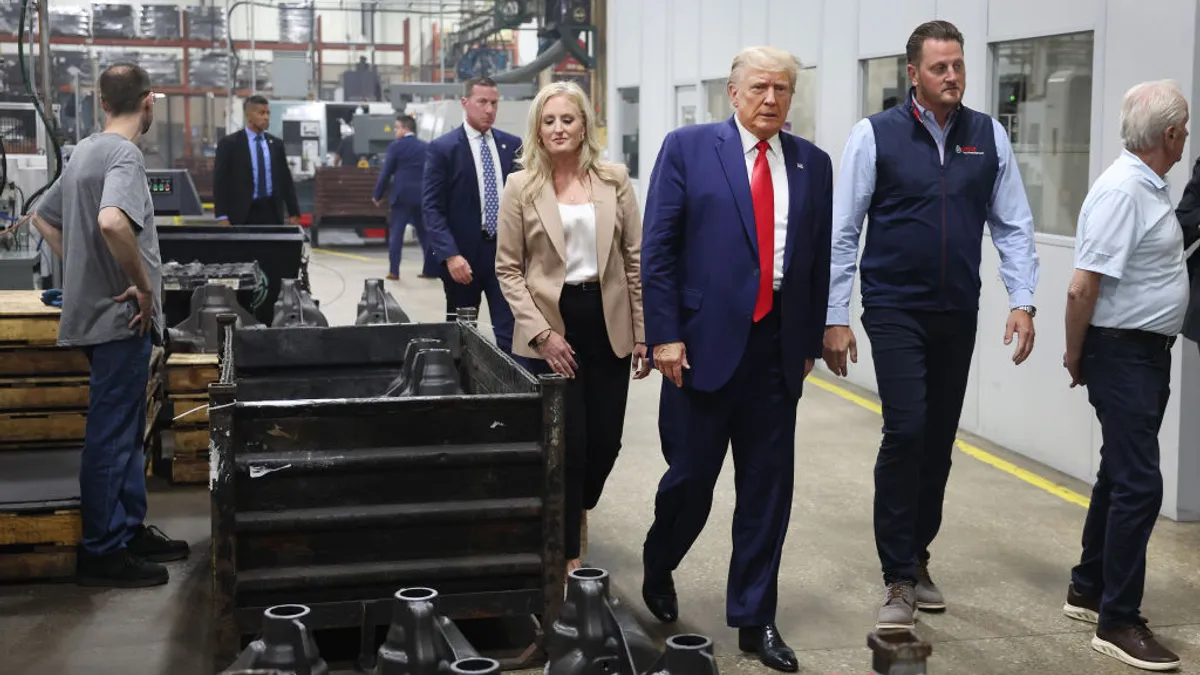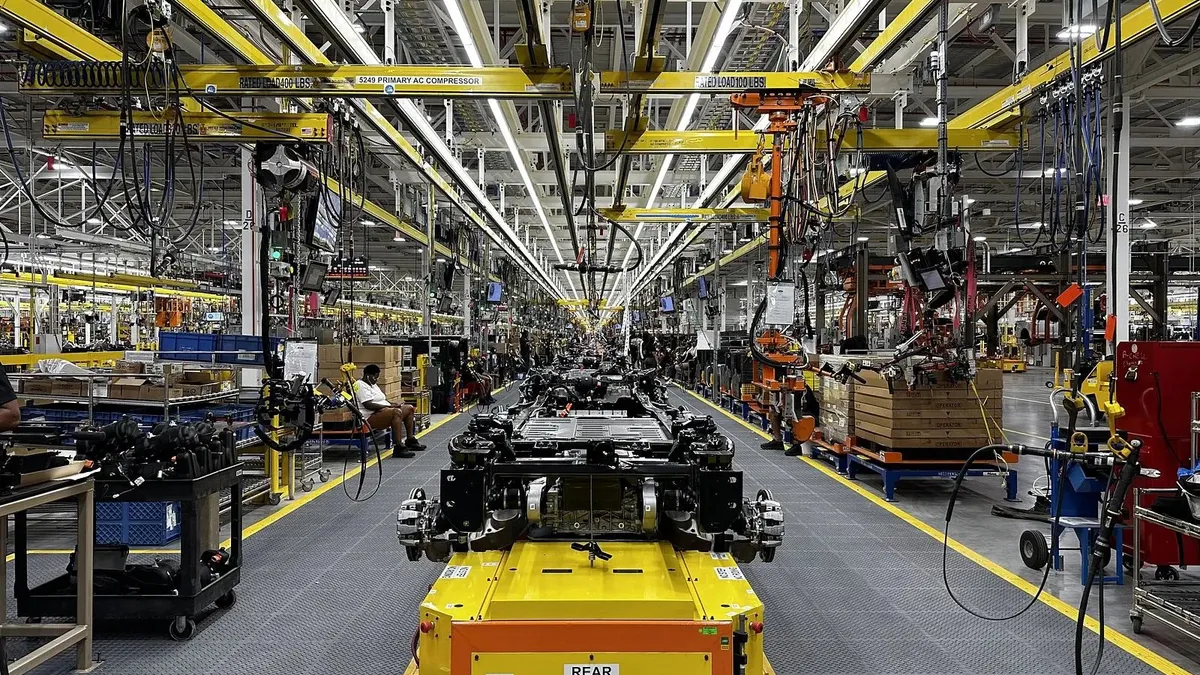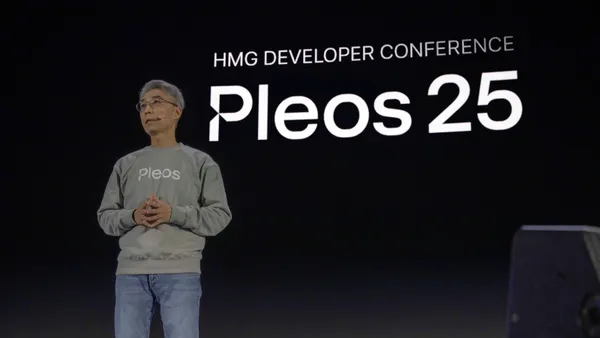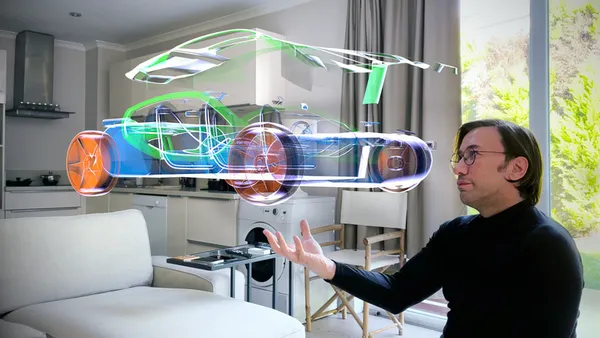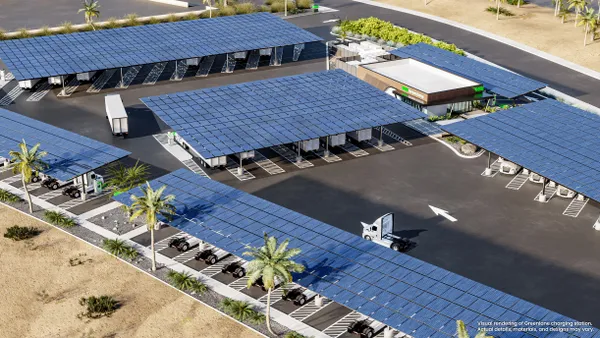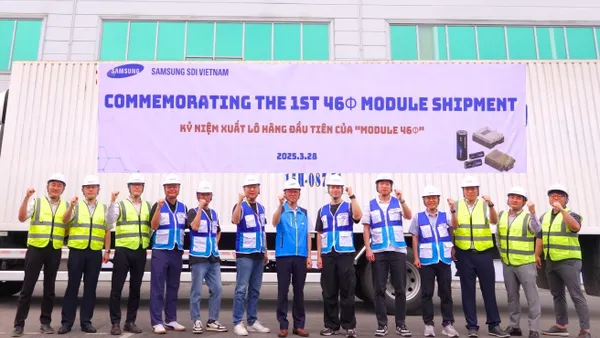Dive Brief:
- Panasonic Automotive Systems and Arm have inked a deal to standardize automotive architecture for software-defined vehicles, according to a Nov. 7 press release.
- The two companies say they recognize the need for the industry to shift from a hardware-centric to a software-first development model to address challenges created by high-cost, vendor-specific proprietary interfaces.
- Through the collaboration, Panasonic and Arm seek to adopt and extend the device virtualization framework VirtIO, and utilize Panasonic’s graphics processing unit technology, Unified HMI, to implement a display zonal architecture for vehicles built on Arm.
Dive Insight:
The partnership between Panasonic and Arm stems from their participation in Scalable Open Architecture for the Embedded Edge, or SOAFEE, an industry wide-initiative that aims to bring the automotive and software industries together to make AI-enabled SDVs a reality.
As the automotive industry moves towards consolidating multiple vehicle electronic control units into a single powerful ECU— such as a Cockpit Domain Controller or High-Performance Computer — OEMs and tier-1 suppliers have been challenged by vendors’ proprietary interfaces, the release states.
Together, the two suppliers aim to broaden VirtIO standards for more automotive applications, which includes standardizing interfaces for real-time operating systems to decouple advanced driver assistance systems software from hardware dependencies.
“SDVs continue to be one of the most exciting opportunities for automakers today, but realizing this vision demands innovative approaches that allow software developers to begin their work before physical silicon is available,” Dipti Vachani, SVP and general manager of the automotive line of business at Arm, said in the release.
Panasonic and Arm will also collaborate to implement VirtIO in virtual hardware, bridging the gap between virtual and physical automotive systems.
“By combining the expertise and industry leadership of our organizations, we are confident that this collaboration will unlock software potential and serve as a crucial foundation for building the future of automotive technology towards SDV,” Masashige Mizuyama, EVP and CTO of Panasonic, said in the release.
Panasonic and Arm’s partnership is the latest collaboration amongst automakers and suppliers on SDVs. In April, Porsche announced a deal with Silicon Valley-based startup Applied Intuition to develop vehicle software, which was followed by BMW Group and Tata Technologies signing a joint venture agreement to collaborate on SDVs.





